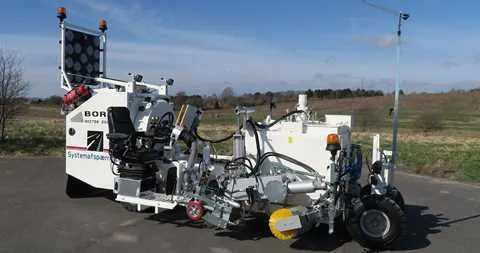Geveko Markings has introduced Thermo Primer, an improved one component primer replacing PREMARK Primer. The company said that Thermo Primer secures strong bonding between thermoplastic markings and surfaces with little or no bitumen. With the Thermo Primer you get faster drying time of the primer, so the application of the markings can be finished faster. The 4litre tin is also more easily opened. Also, Thermo Primer will be available in 20litre cans soon. From an environmental perspective, the GHS09
February 8, 2018
Read time: 1 min

The company said that Thermo Primer secures strong bonding between thermoplastic markings and surfaces with little or no bitumen. With the Thermo Primer you get faster drying time of the primer, so the application of the markings can be finished faster. The 4litre tin is also more easily opened. Also, Thermo Primer will be available in 20litre cans soon. From an environmental perspective, the GHS09: Environmental Hazard and the GHS08: Health Hazard are not on the Thermo Primer due to the improved formulation, noted the company.









